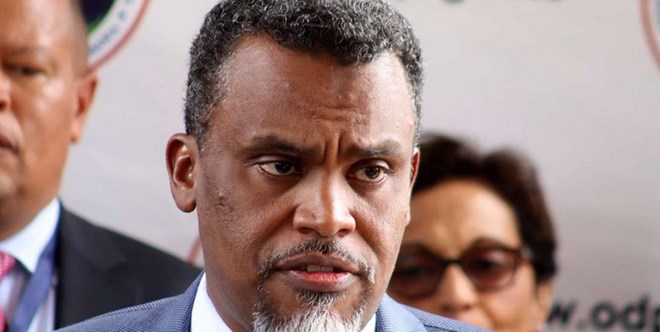Accept autopsy to help solve cases, DPP tells Muslims

Wednesday July 28, 2021

The family of the late Yusuf Hassan of Mombasa County is among Kenyan Muslims who have buried their relatives without conducting a postmortem examination to reveal the cause of their loved one’s death.
Such families have cited religious barriers and the country’s justice system as the main reasons they avoid the procedure.
Hassan had gone missing before his body was found in the Indian Ocean.
But before all that the family had accused police of beating up their relative, saying that might have caused his death.
“We did not conduct any postmortem, because no justice would have come from it. We decided to respect the dead and buried him immediately,” said his father Hassan Yusuf.
“We had written a statement and nothing was done. Imagine if we had conducted the autopsy and nothing had been done. That would have disrespected our own relative.”
Islam does not allow a dead body to be disrespected in any way, said Sheikh Izzudin Alwy.
“An autopsy on the body of a Muslim is done only if it is mandatory. That is, under limited circumstances, like revealing the type of disease that killed the person,” he said.
“But if the body is placed in a freezer to await an autopsy, then that is disrespect,” he said, adding that a Muslim body is supposed to be buried the same day or immediately after the death.
He noted that many Kenyan Muslim families feel they do not get the justice they deserve when alive and that is why they feel the same when one of them dies.
The sheikh argues that few Muslim women study pathology courses, limiting the number of Muslim women who can do postmortem examinations.
“When a woman dies, even her husband is not allowed to wash her dead body. Therefore, a male pathologist cannot conduct her postmortem exam,” he said.
Few Muslims subject their deceased relatives to postmortem examinations, the Nation has learnt.
The family of the late Najma Abdullahi, who went missing and was later found dead, were among the few who have chosen a postmortem path.
The family says they allowed the procedure to be conducted on their daughter so as to reveal the cause of her death. The autopsy revealed that she had been tortured, but they said no suspects have been charged.
This has resulted in Muslim clerics demanding justification from the courts on why deceased Muslims should undergo postmortem exams.
But Director of Public Prosecutions Noordin Hajj has urged the clerics and Muslim families to allow autopsies on dead relatives.
“Without an autopsy result, it becomes hard to prove the case before the court [when an extrajudicial killing is suspected, for example],” he said.
“Therefore, it is time for Muslims to consider conducting a postmortem as it will help in defending their allegations before court.”
Haki Africa Executive Director Hussein Khalid cited the reluctance of Muslims to allow autopsies as one of the reasons unknown bodies cannot be identified.
“We face challenges where we retrieve bodies, but the family refuses an autopsy exam, thus making it difficult to identify the body’s identity. It is time we allow postmortems … to ensure families get the justice they deserve,” he said.
